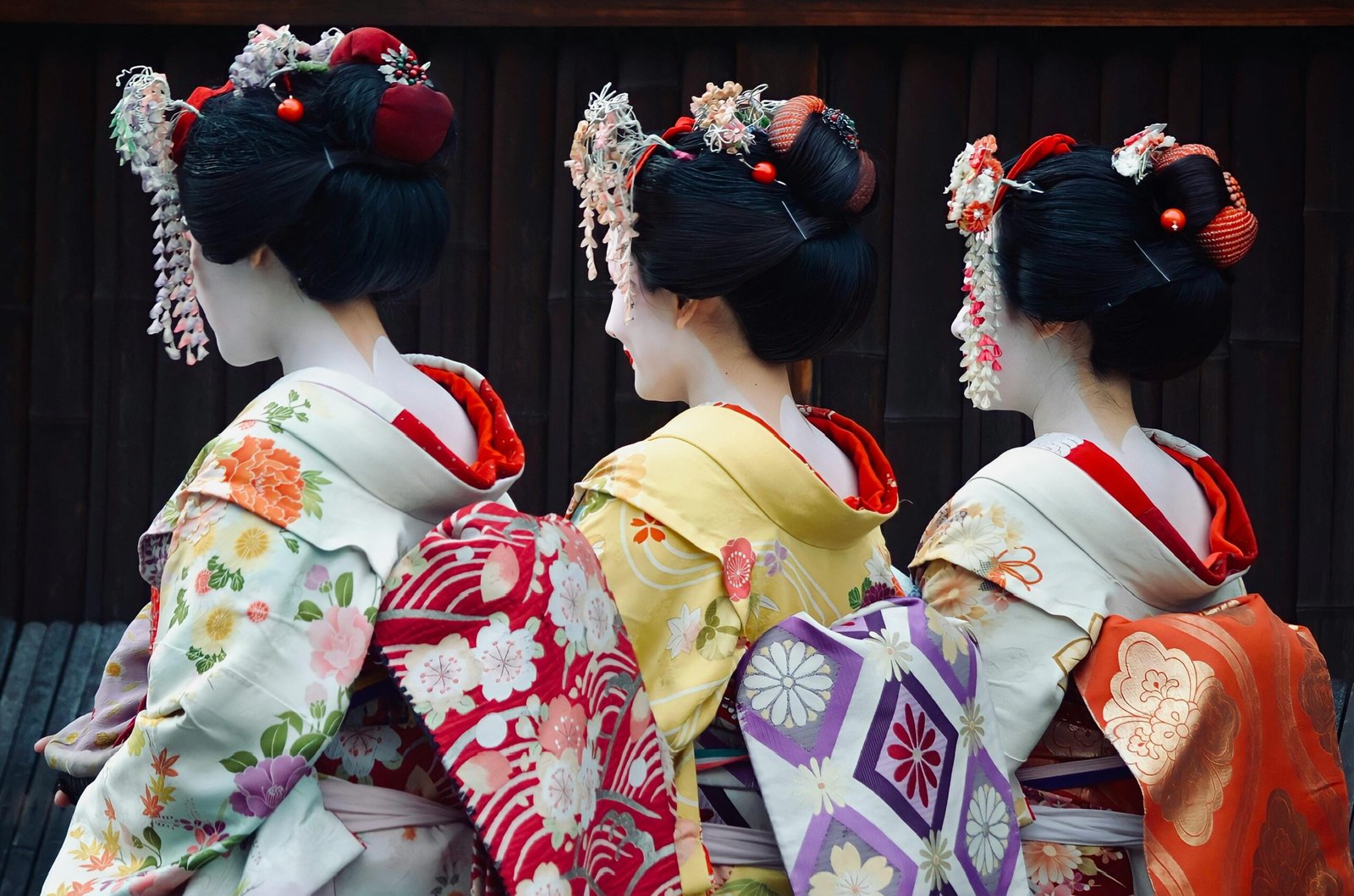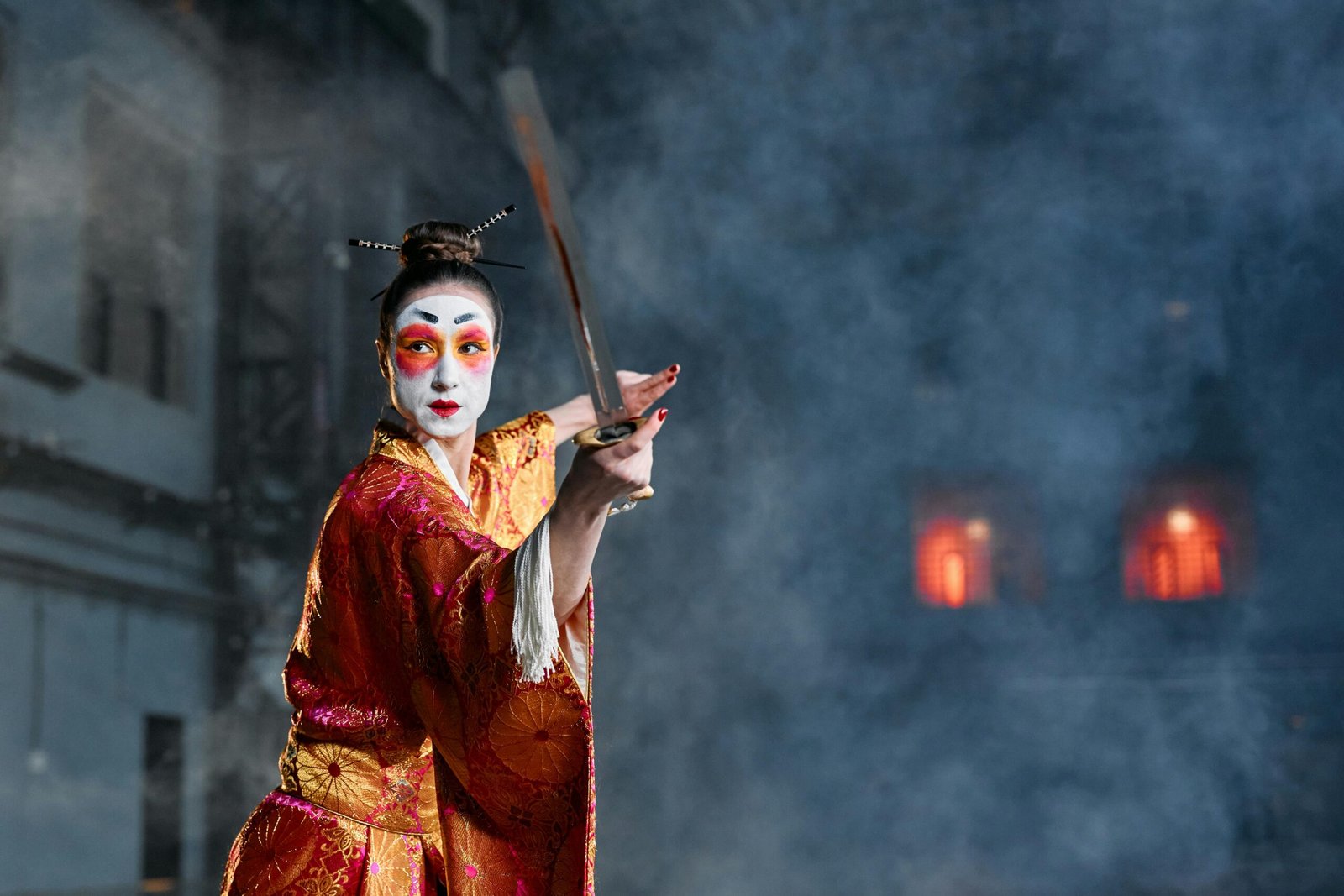I will start this article with some of the names, anyone can hear so frequently in Japanese society. A few of the examples are Minato-ku Joshi, Himono onna, Age-Man and many more.

Labels used for women in Japanese society:
Titles used for women in Japanese society are, Age man and sage man, Bari Kyari and you-kyari, youchien-mama, Himono-onna and Minalo-Ku Joshi. These are the types of names very common in use in Japan and between the people of Japan. There is a type named, Ninkushoku-Joshi, they are the types of women, who hit on any man, irrespective of the fact that that man is already with someone and have a wife or a girlfriend.
Why labels:
People of Japan (Japanese) have names for all types of women and this is imbibed in their culture for a long time .women are named based on the acts they perform, the way they behave, the personality they got and the way they dress give their names.
Characteristics used to characterize women :

It is the priorities of the women, their job and their hobbies. If they like to work their whole life, with their husband, being in the home, have children and stay as a homemaker or if they like to do the job and do as per their hobbies.
1.) AGE MAN:
There is a label for women in Japan and that is age-man. The age man label is used for women, whose husbands got promoted right after their marriage. This means these types of women are lucky for their husband’s careers and growth. The people of Japan enjoy categorising themselves into the category based on their personality and their way of living. Title Age-man was highlighted when the movie called,” Tales of a Golden Geisha”. This is a comedy picture, with Geisha as a Japanese female character who brings golden opportunity and luck for her partner or another half. Age man means to raise another one in the path of luck. The men who stay with the age men females are successful in every field and they are always motivated. They bring golden opportunities for their significant others.
2.) SAGE MAN:
Another label for women used highly in Japanese society is, sage-man. Sage -man is the female who brings bad luck for their husbands or partners. Sage-man means to bring down. They bring demotions to their significant others. Females who are sage men always drag their partners into bad luck sea.
3.) BARI KYARI (バリ キャリ)
The label used for women, Bari-kyari, this term is for females who value their career first, are very energetic and work very hard in any field they are working and giving their all time and energy into it.
4.) YURU KYARI (ゆる キャリ)
The another label is for women on this basis is, yuru Kyari. This type of woman doesn’t go out for work and do any type of sort of work. Their life is revolving around their families, their children, their hobbies and their personal lives.
A lot many women get transferred from Bari Kyari to yuru Kyari, once they get married and give birth to their children. Some of them, do it my own and some of them are stuck in this situation. Then they devote all of their time to raising their children and to their families, in Japan. They give more effort and time to their children as compared to their partners.
5.) JOCHEN MAMA
The other label, in which few women are titled is, Jochen-mama is. This type of woman falls under the age group of women in their thirties or forties. They are said to be settled in all possible ways, they have their families, children and husband. They generally have a child who attends playschools or kindergarten.
6.) NIKUSHOKU JOSHI (肉食 女子)
Another label for women in Japanese society is Nikushoku Joshi. They are characterized based on romantic involvement with their partners or significant others. The label, Nikushoku Joshi means, the carnivore female. In our day to day life, carnivore means, someone who eats plants and animals, which means feeding on both. But, here in Japanese this title, Nikushoku Joshi is given to the female or women who are more active in romance and aren’t afraid to take the first steps in their relationship. They are sexually active and breaks all the stereotypes against women or females. They are meant to be aggressive too. They tend to see and ask for sex, without any hesitation or with the stereotype that, females can’t ask and talk openly about these topics. They don’t even hesitate to have physical relations before getting into any human relationships.
There is a similar type of title for males which is totally different from the title or label is given to females. That is, yoshoku danshi. This title means, herbivore guy. In our day to day life, we call herbivores organisms who only eat green plants and grasses. Yoshoku danshi are men who are not masculine and don’t look manly. In Japan, it is said that Nikushoku Joshi and yoshoku danshi are great couples. Because it is said that opposite attracts.
7.) HIMONO ONNA (紐の 女)
Another title for women among the people of Japan is, Himono onna. They are considered dry. They usually stay at home and that also alone. They are not interested in love relationships and romantic relationships. They like to stay alone and at their home. It is thought that these types of women usually stay ad home in their pyjamas and read Japanese manga. Their favourite hobby is sleeping all day. Their love life is considered dry. Many women due to this labelled title, goes into the relationship.
8.) MINATO KU JOSHI
Another title labelled for women in Japanese society is, Minato Ku Joshi. They are based on the features of women who are considered the prettiest women who try and hits on rich guys. These women are generally at the age of twenties or early twenties. They are said to be very rich. They stay in luxurious spaces. Their types of men are, handsome, rich, highly educated and should have a bright future, in Japan. They generally hunt over guys who are businessmen, doctors or CEOs. They usually visit higher class and expensive hotels and restaurants. They have connections with higher class people and actors. They have high intelligence and they also have successful and bright careers.
Many women in Japan, name and label themselves on the based characters. They like and enjoy being called these titles. These labelling things are coming and continued for a long time and are still the present.
Women in Japan were having equal rights as men for a long time. In today’s era, women sometimes choose their future and career for themselves and sometimes, the situation makes them or sometimes force them to choose their career and future. The reasons can be their marriage and children, most of the time. Women have all the rights that men can have in Japanese society among the people of Japan . It’s not like only women are titled or labelled as these names. Men are also titled as various names or sometimes some names are almost similar to the titles which are given to women. The characteristics on which women are divided into titles and groups, most of the time are attracted towards the men who are opposed to their characteristics. Because it is the law of nature that opposites will always attract each other. Sometimes, these women like to chase men and get them. They like to be called by these names. These titles increase their pride and make them proud. In other countries, these titles and labels are not in use for women in their societies.
Scams and frauds realted:
It is seen that sometimes some women have their whole personalities, their characters and their whole living styles just for the reason to fit into a particular title or label. And they also do so for too hunt rich and handsome guys for them which will secure their future. Many cases come on surfaces related to these things. Sometimes some men file a complaint against these women and these women get arrested and sometimes imprisoned for the laws which come under scams and cheating. Faking a whole life is totally wrong. They mostly fake themselves for the high-class women living in high societies of Japan.
All of these titles and labels are in a continuous process from a very ancient civilisation in Japan . And the people of Japan are said to be very strict and conscious about their culture and the ways to continue what their ancestors have already decided for the Japanese society and the upcoming generations in the future. And this process of labelling and giving titles to women are also a part of their culture what their ancestors have for them and they are totally okay and fine with these things. Often at any public occasions or any social gatherings where a lot of men and women come together and then these labels and titles are used or come in use for women. Men’s also got titles and labels but women’s titles and labels are in great use in Japanese society among the people of Japan.
Luckiest women according to the title:
Age man women are considered the luckiest of all labels and titles of women given. Even if they are poor or do not belong to any high-class societies unlike some other titles and labels,
men generally prefer them. Men in Japan prefer them for the betterment of their career and future, which will be bright or more bright than before the existence of the age man women in their lives. Age man women will always push them to do better and shine in any field they belong to. So, the age of man women among the people of japan is always in high demand as a partner or for a position for significant other in Japanese society.
Difference from other countries:
However, these can be considered wrong in other Asian countries or any other countries, people of Japan are totally cool with these labels and titles. Any foreigner, outsider or someone who is not Japanese or does not belong to Japanese society, may find this odd at the start but they get usual to these things after some time they spend in Japan and between the people of Japan. These labels are very common in Japan and among the people of Japan. So, any outsider or foreigner will often listen to these labels and titles and get used to these things.
However, many feminists from all over the world will consider this wrong and may protest but no one should interfere in the matters of the country and the countrymen. If they all are fine and comfortable with this, no one should interfere with these things. This may hurt their sentiments.
Reactions of a few females in Japan over the tradition of labelling:
However, few of the females of Japan don’t like to get characterised or have any title but they have to accept those labels due to the reason that they can’t hurt their ancestors. They also accept these labels due to peer pressure.
A lot of women come under the group of Bari Kyari or Yuru Kyari. A huge number of females come under this. Bari Kyari gives priority to their jobs and careers, and they are generally unmarried even if they are married, they don’t have children to take care of or a reason to convert themselves to another group having another label and that is Yuru Kyari. Yuru Kyari is married and has children. They have a family to look after and take care of. They give priority or prioritise their family and children and they leave their job or don’t have any job so that their time will be divided. Often their children study in kindergarten and not the playschool. Bari Kyari women have all their time devoted to their work and the time invested for their better future. Usually, women falling under the category or the title of Bari Kyari have a very productive personal life they are very hardworking and they are far more energetically active in comparison to other normal women.
Despite all these labels, all women are beautiful in their own ways.

[…] Japanese culture is filled with a great number of interesting facts and practices. Most people are unaware of these […]